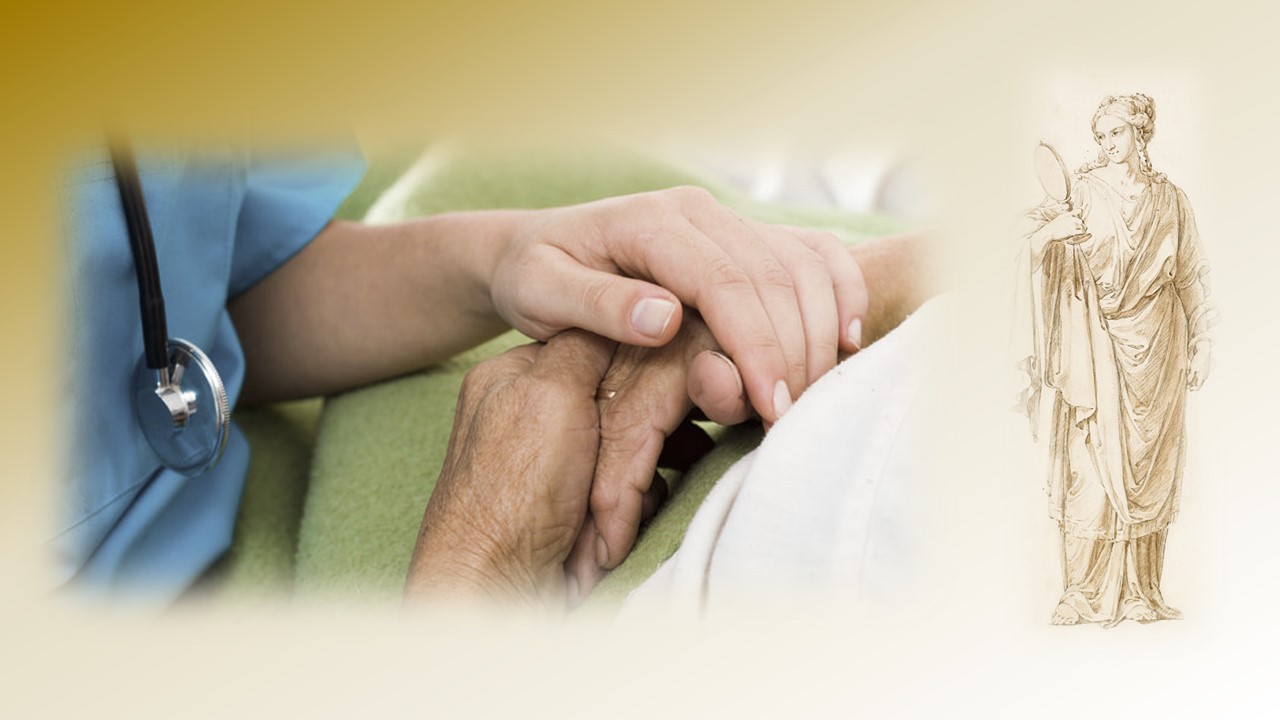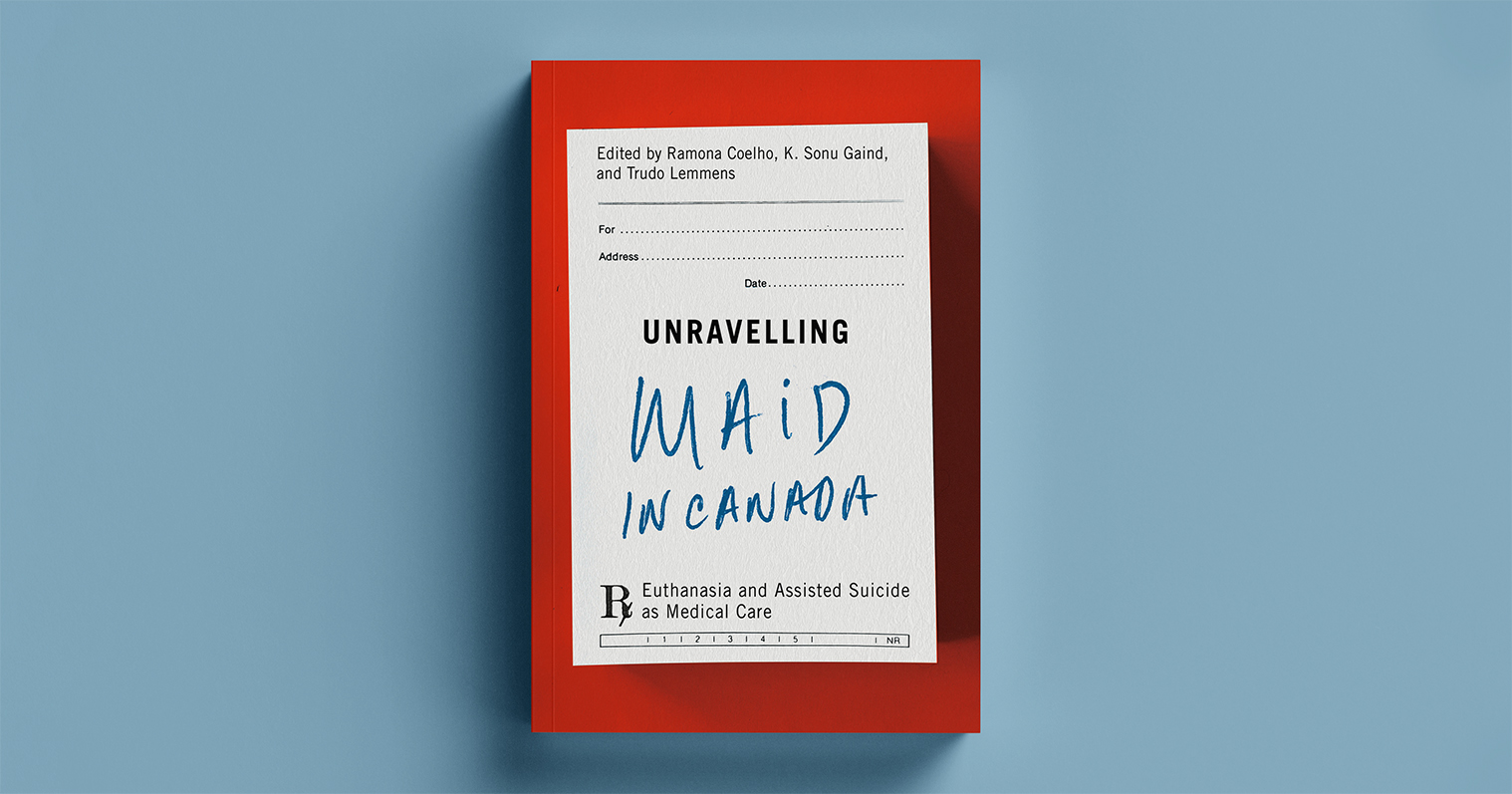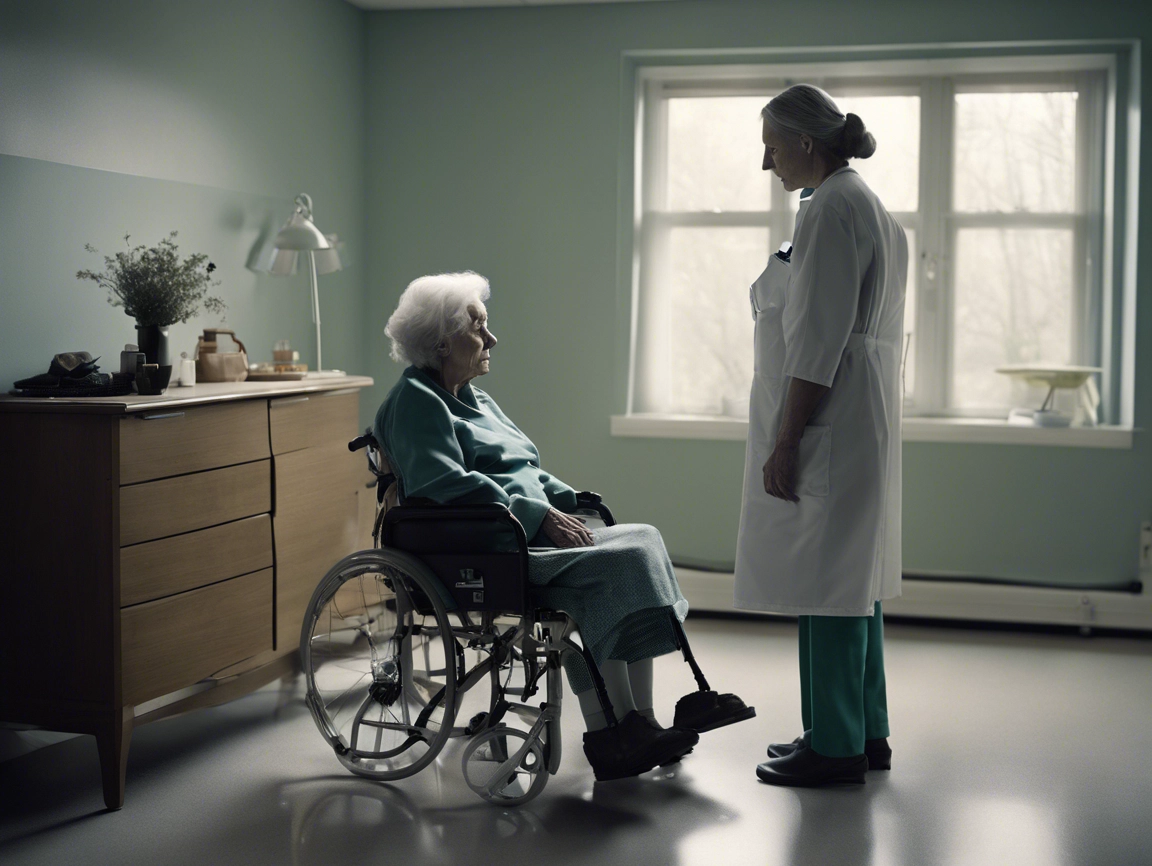
Dear friends,
On September 11, 2019, Quebec Superior Court judge Christine Baudouin ruled that the prohibition of “medical assistance in dying” of people who are not at the “end of life” (in the Quebec law) or whose death is not “reasonably foreseeable” ( Canadian law) is unconstitutional. Elated by its victory, the death lobby is now pressing the Prime Minister to weaken the law even further by removing the requirement that a person be capable of consenting to the euthanasia at the time of their death.
The scenario envisaged in the news reports is that of someone, having requested euthanasia, losing the capacity to consent as their condition deteriorates. But euthanasia activists are also pressing for lethal injection for people incapable of decision-making because of cognitive disorders who expressed a desire for it by advance directive.
Concurrently, a Quebec government committee released its report on November 29, 2019, recommending euthanasia by advance directive in both these situations. Federal Justice Minister David Lametti also announced on December 11 his intention of considering this possibility. Continue reading editorial…
Canadian news:
Legislation regarding medical assistance in dying:
- In September, the Quebec Superior Court declared the reasonably foreseeable death clause in federal law unconstitutional and ordered Ottawa to change its law by March. As already known, the Trudeau government did not appeal this amendment and was planning on introducing a bill this Spring (March 2020) to revise its law on medical assistance to die by removing the ‘reasonably foreseeable death clause’. Prime Minister, Justin Trudeau has mandated Justice Minister David Lametti to work with the Patty Hajdu, the Federal Health Minister to work on the reform based on the September court decision.
- In an interview with Radio-Canada (available in French only) on Wednesday, December 11th, Justice Lametti indicated that he was eager to reopen the law and will consider going even further than the court requires, particularly with regard to adults with cognitive impairment and some minors as well as the possibility of advance directives.
- Also ahead: In June 2020, the Liberal government begins a mandatory review of the current regime for physician-assisted death, which came into force in June 2016.
- Possible expansion of Quebec legislation regarding medical aid in dying: A 150-page report, written by a Quebec government commission mandated to examine the possibility of expanding access to medical aid in dying to patients incapable of decision-making, was tabled by Minister Danielle McCann. It includes recommendations that the law allow individuals to make advance directives requesting a doctor-assisted death, which is not allowed under current law.
- Quebec to hold public consultations on expanding criteria for medically assisted dying law Health Minister Danielle McCann announced on November 29th the launch of public consultations before the 2022 election on expanding criteria for medically assisted deaths in Quebec, led by a panel of 22 experts, The proposed expansion could allow the medically assisted death of people with Alzheimer’s disease and other degenerative conditions.
- Press-release (In French only): The End-of-life-care commission welcomes the recommendations made by the panel on the expansion of euthanasia and advanced directives.
- A Québec man requested euthanasia due to deplorable living conditions in the nursing home where he lived: Speaking out before dying (article available in French only: Dénoncer avant de mourir)
Commentary : Rather die than live in a nursing home (in French only : «Mourir plutôt que de vivre en CHSLD»)
- When rights clash: Balancing autonomy with the equal right to live with dignity and respect The Vulnerable Persons Standard reflects on Canada’s current biggest challenge in revising its medical assistance in dying legislation and the need for our highest courts to “intentionally maintain a delicate balance of fundamental rights” despite deadlines imposed in a lower court decision.
- Trudeau pressed to ensure less restrictive assisted-dying law a priority – Pro-euthanasia lobbyists are urging Trudeau to have his next justice minister give priority to amending the law and is pushing further demands than stipulated by the ruling. There is great danger is such an amendment, as the requirement for consent provides a safeguard for vulnerable individuals and removal of such a requirement will undoubtedly open the door to abuse.
Commentary: Canadian leaders should defend human dignity in life — not just death
4th Annual Report of the Commission on End-of-Life Care (available in French only):
- Minister of Health Danielle McCann tabled the 4th Annual Report of the Commission on End-of-Life Care in the National Assembly.
Extension of rights for specialized nurse practitioners in Quebec:
- The Association of specialized nurse practitioners of Quebec (Association des infirmières praticiennes spécialisées du Québec: AIPSQ) recently unveiled its recommendation for the extension of rights to specialized nurse practitioners to administer medical assistance to die. If such an extension is granted, it will put more patients at risk for euthanasia.
Alberta Bill 207 (2019):
Latest update:
Information:
- Conscience Rights (Health Care Providers) Protection Act. Bill 207 aims to protect the conscience rights for health care providers and organizations without limiting access to legal healthcare services. Bill 207 passed its first vote, on November 7.
Commentaries:
- Alberta MLA moves to protect conscience rights of health-care professionals
- Protecting doctors’ conscience rights preserves a free society:
“…where conscience is protected, we are able to exercise moral freedom — making deep and significant moral judgements independent of government….They encounter a host of moral and ethical considerations daily, making moral judgements more often than most other professions. This is why doctors need legal protections for their conscience rights.”
“Protection of conscience has a strong moral and intellectual basis…If a person can be compelled to accept the state’s notion of right and wrong regardless of his or her own conscience, then what is left of the notion of individual freedom?”
Across the border:
National Council on Disability (NCD) Quality-Adjusted-Life Report
- Quality-Adjusted Life Years and the Devaluation of Life with Disability Report is part of a five-report series on the intersection of disability and bioethics. This report, and the others in the series, “focuses on how the historical and continued devaluation of the lives of people with disabilities by the medical community, legislators, researchers, and even health economists, perpetuates unequal access to medical care, including lifesaving care.”
INTERNATIONAL NEWS:
New Zealand passes law legalizing euthanasia:
- The End of Life Choice Bill in New Zealand was passed November 13 by a vote of 69-51. However, the law does not take effect unless accepted in a referendum in 2020. 1500 Drs signed an open letter ‘Doctors Say No’ opposing euthanasia. Palliative care specialist Dr Sinead Donnelly affirms that there is no place for a doctor intentionally ending the life of another person.
Commentary : University of Otago psychiatrists call on colleagues to say no to euthanasia, by Liane Topham-Kindley, University of Otago
DOCTORS’ VOICES:
- Changes put disabled at risk, experts warn: Dr. Ferrier, president of the Physicians’ Alliance against Euthanasia and Dr. Nuala Kenny, advisor to the Vulnerable Persons Secretariat voice their concern on behalf of all those who support individuals with disabilities, warning us that pushing the limits of medical aid in dying sends a very coercive message to individuals with disabilities, that they are a ‘burden’ to society.
- Organ donation after MAiD: it’s not that simple by Claire Middleton.
- Doctors win right to challenge Royal College of Physicians (RCP)’s controversial decision to go neutral on assisted suicide: The doctors launched their legal action against the RCP after it announced in March that the college was dropping its long-established opposition to assisted suicide, following a poll requiring a 60 per cent supra-majority.
COMMENTARIES:
“We have set up medical and legal frameworks that enable sick, old and disabled people to access death, and our de facto policy is not to monitor whether we could have helped them to live. Since “what gets measured gets done,” this depoliticized picture of MAiD as oppression-free excuses us from doing anything.”
- Responses (available in French only) to Luc Ferrandez’s suggestion of euthanasia as a social and economical solution:
Bravo to Nathalie Elgrably-Lévy and Mathieu Bock-Côté for their apt responses to Mr. Luc Ferrandez’ eugenic solution for the social and economic problems of our world today. Elgrably-Lévy rightfully points out that Mr. Fernandez’s question (Whether we could, for environmental, social and economic reasons, decide that we want to receive medical aid in dying so as not to constitute a burden for our family and society in general?) reveals not only the absence of humanist values but an absence of humanity! “… isn’t it ironic to hear a champion of solidarity and compassion call a patient a “burden“?” - Contemplating the Hippocratic Oath and Physician-Assisted Suicide
“The Hippocratic Oath rightly prohibits doctors from giving deadly drugs, even if autonomous patients ask for them. By assisting in the suicide of a terminally ill patient who wants to determine the manner of his death, the physician inappropriately medicalizes mortality itself. He also jeopardizes the welfare of other vulnerable patients.”
- Canada’s euthanasia philosophy: ‘control, choice and change’ by Margaret Somerville
- Globally, opposition to euthanasia dwarfs end-of-life movements
- Résister à l’eutha-nazie: An astute opinion piece (in French) on the societal acceptance of euthanasia, emphasizing the true dignity of eliminating suffering and not the person who suffers.
- Dr Saba speaks against euthanasia and assisted suicide on CTV Montreal news
RESOURCES:
- The IEB is an interesting website with a variety of articles of euthanasia and end-of-life.
- For the second consecutive year, the Centre of Continuing Education of the Faculty of Medicine and Health Sciences of Sherbrooke University is proud to offer free registration to all medical residents of Quebec for the online learning module on the appropriate use of opioids in the treatment of acute pain and chronic non-cancerous pain (Utilisation judicieuse des opioïdes dans le traitement de la douleur aiguë et de la douleur chronique non cancéreuse). 22 October to 18 December, 2019.
- Broadcast in French on Télé-Québec debating the extension of medical aid in dying: Doit-on élargir l’aide médicale à mourir?
- Advance Care Planning Online Workshop – Who will speak for you?
IN THE LITERATURE:
- Perspectives in Biology and Medicine Volume 62, Number 3, Summer 2019 Special Issue on Conscience in Medicine.
- The American Journal of Geriatric Psychiatry Available online 22 August 2019 Euthanasia and Assisted Suicide of Persons with Dementia in the Netherlands. Mangino, D.R., Nicolini, M.E. De Vries, R.G. and Kim, S.Y.
- The Linacre Quarterly (2019) 86(4), 359–365 Does It Matter How We Die? Ethical and Legal Issues Raised by Combining Euthanasia and Organ Transplantation. Somerville, M.
- Psychological Injury and Law (2019) p1-15. Available online since 15 November 2019. Determination of Competency for High-Gravity Life-Death Decision-Making. Schultz, I.Z., Stewart, A.M. & Sepehry, A.A.
****************************
VOLUNTEERS NEEDED!
The Physicians’ Alliance against Euthanasia is looking for volunteers to translate texts from English to French. Professional translation certification is not mandatory, but an excellent level of written French and some experience with translation is required. If you would like to support our work by volunteering as a translator, please write to us at info@collectifmedecins.org.


